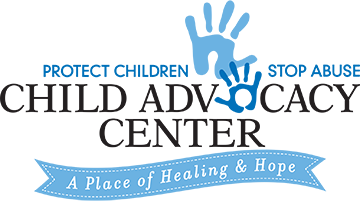Code of Conduct for Volunteers

The Child Advocacy Center (CAC) values the importance of maintaining a safe environment for its clients, caregivers, employees, volunteers, visitors and individuals officially associated with the CAC.
This Code of Conduct was developed to reflect the commitment of the CAC towards conducting its operations according to the highest standards of integrity, ethics, safety and professionalism. All persons having business with, or associated with the CAC in any capacity, are expected to adhere to the highest standards of personal conduct, integrity, ethical behavior and professionalism. This specific Code of Conduct applies to all CAC employees and volunteers.
It is not possible to list all the kinds of behaviors that are considered to be inappropriate and prohibited. Therefore, the following list, although not all-inclusive, provides examples of such prohibited, harmful and/or inappropriate behaviors.
Violators of this Code of Conduct will be required to meet with the CAC Executive Director. Depending on the nature and severity of the violation, the CAC Executive Director will counsel and/or request the offender to leave the CAC premise immediately.
Actions considered to be inappropriate, harmful and/or prohibited:
- Theft or inappropriate removal or possession of property
- Falsification or unauthorized alterations of CAC records/documents
- Possession, use or being under the influence of illegal drugs
- Possession, use or being under the influence of alcohol during CAC work hours, except for limited use during authorized CAC functions where alcohol is being served.
- Fighting, use of profanity or threatening violence
- Unauthorized disclosure of confidential or personal contact information
- Violation of safety or health rules
- Any type of harassment or bullying, such as
- Inappropriate touching, hugging, fondling, or gestures
- Telling or sharing jokes or cartoons of a sexual, racial or ethnic nature
- Showing or including CAC clients in pornography
- Gestures, written communications or other behaviors that threaten, intimidate or humiliate
- Unwelcomed sexual advances, request for sexual favors and other verbal or physical conduct of a sexual nature.
- Unauthorized interactions behind closed doors
- Unauthorized contact with clients outside of CAC activity
- Giving or accepting unauthorized individual gifts to/from clients
- Coercing or coaching clients
- Undue favoritism resulting in the conferral of any benefits, rewards or privilege
- Behavior that is illegal, indecent or which reflects negatively on the CAC
